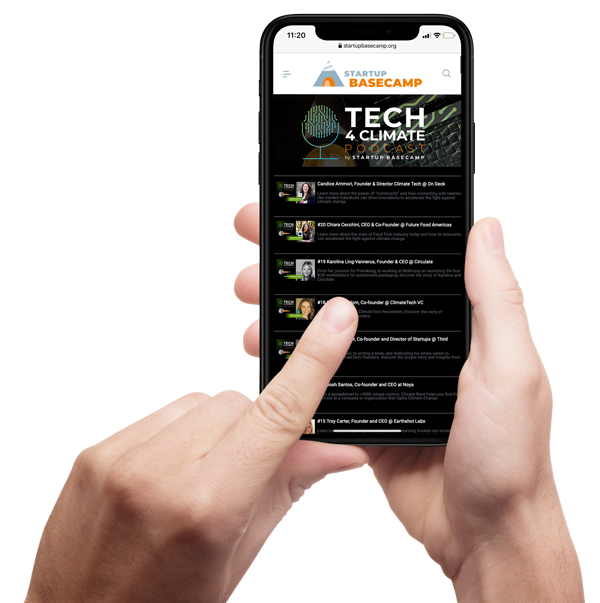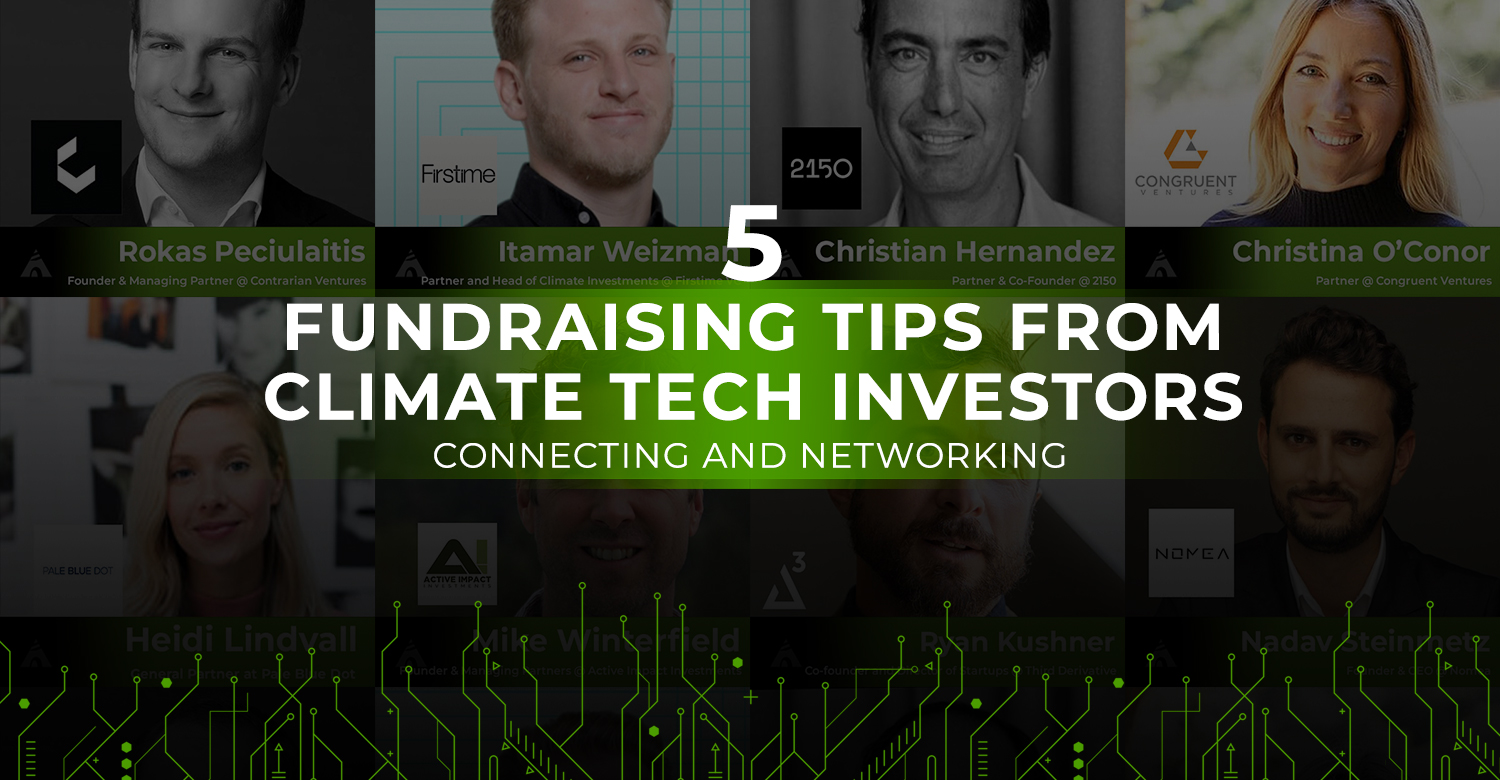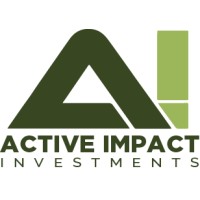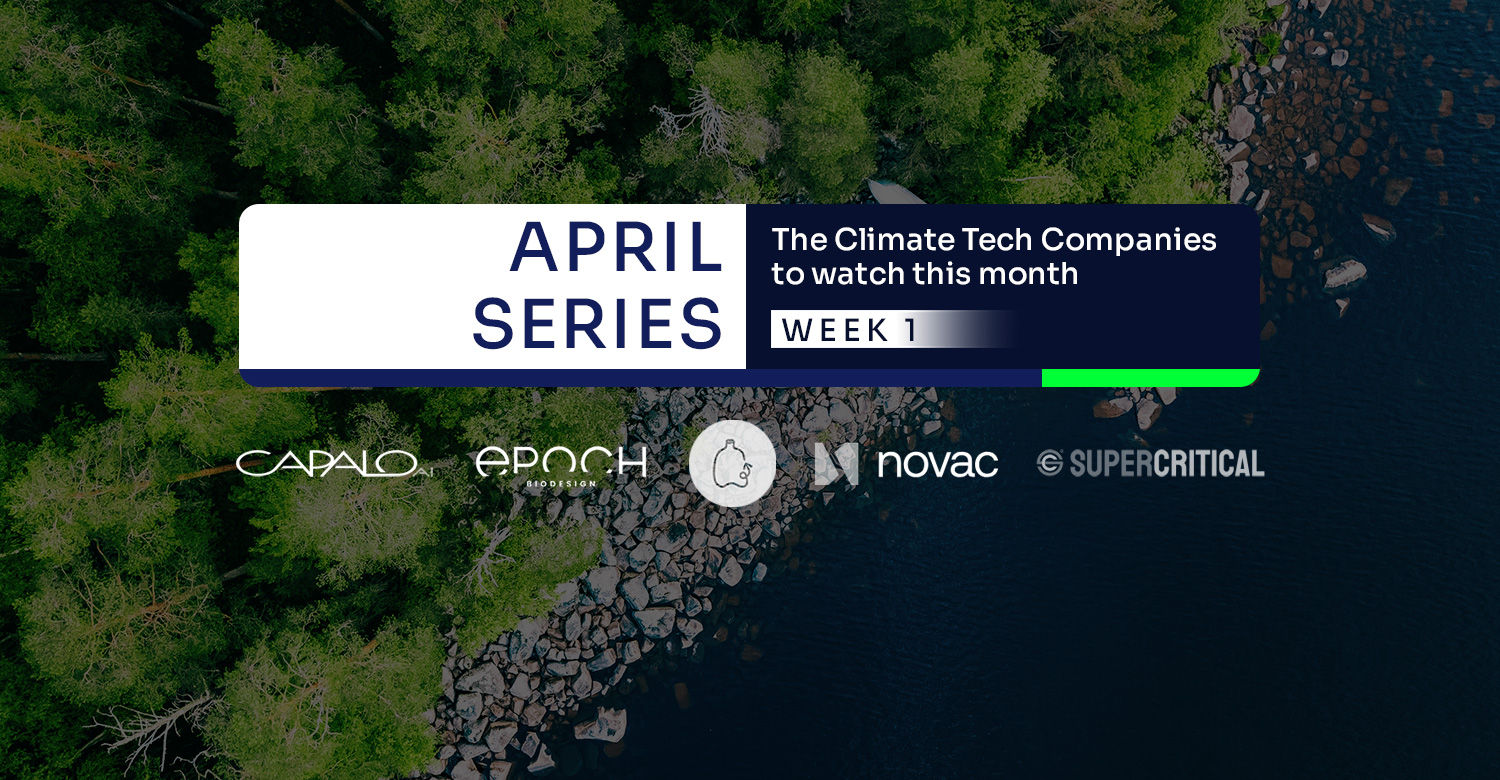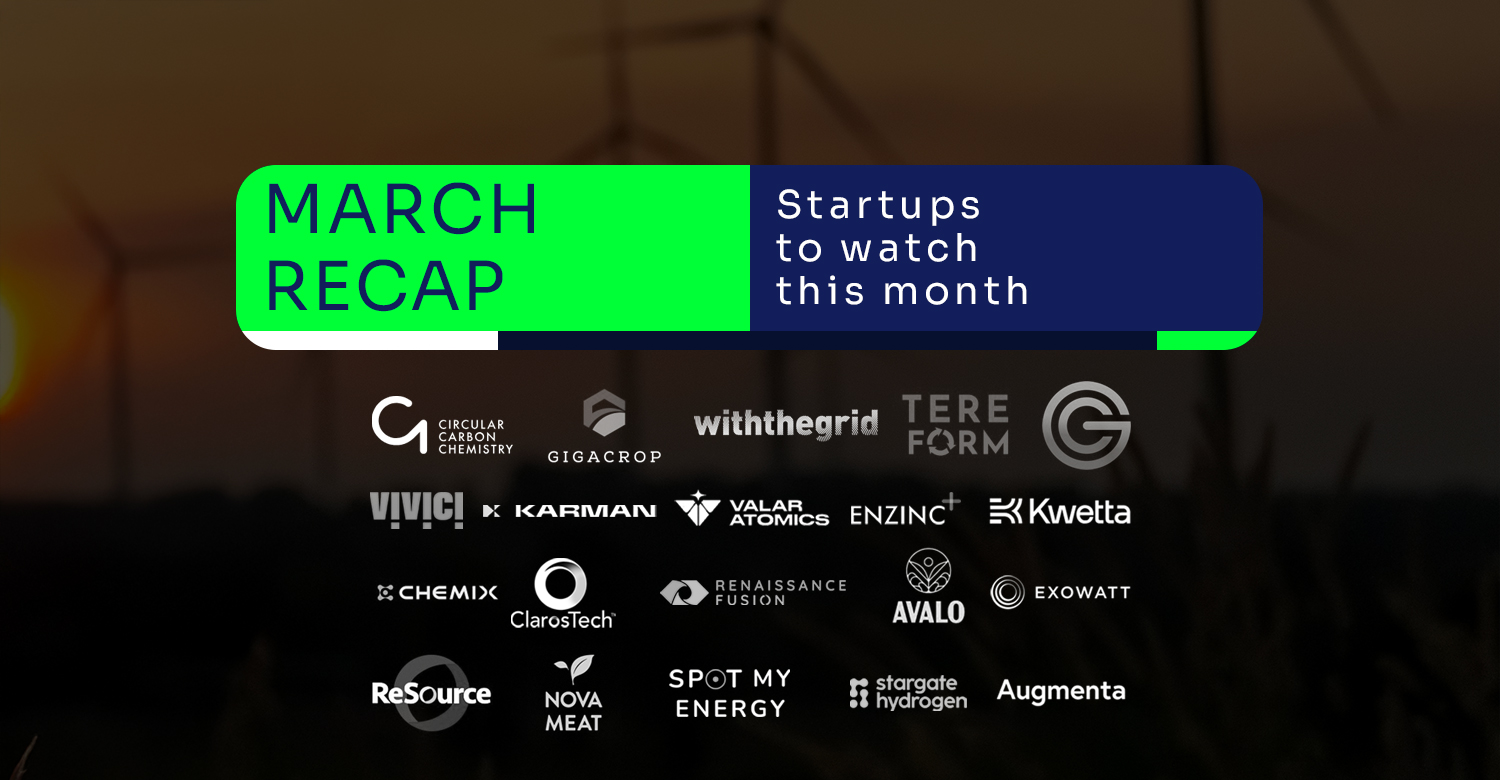Over the last year, we have spoken to 30 different investors across climate tech about how they fund amazing and impactful startups on the Tech 4 Climate podcast. In every episode, we hear insights from different founders and investors into where the market is going, what the hottest new innovations are, what regulatory challenges remain, and what hope they have for the future. We’ve combined these answers to produce five top fundraising tips from climate tech investors for connecting and networking.
These tips come from the podcast Part 2: “My Secret Sauce” just for members where we ask investors what they look for in the companies they fund and what tips they have for founders looking to fundraise.
Over the course of 30 episodes, investors had all sorts of amazing advice that was difficult to boil down to one terse bulleted list. Instead, we have divided their tips into two parts:
- Part 1: Connecting and Networking
- Part 2: Pitching and Convincing
We definitely recommend browsing all of the Secret Sauce episodes, but we have also linked to the relevant ones below with a reference to who said which point in parentheses. We hope these tips can be of use and good luck on your journeys!
#1. Build Your Community
It’s not about what you know, it’s who you know, right? The usefulness of the “warm introduction” is legendary. Yet not everyone has that kind of network or resources. Instead, the climate community is a very helpful one, and you shouldn’t be afraid to do cold outreach within it. Get into as many subject-matter-focused communities as you can and try and figure out who can invest, join, or support you in some way (Michael Luciani).
As you build your community, you should be on the lookout not only for investors but also people for those who can support you in other ways. Identify a person who can be your moral support. Most founders are energized by building and not fundraising and you need someone you can gripe to. You also need to try to find allies who can share the lay of the land with you – e.g. what check sizes VCs want, what their sweet spot is, and what they’re really into. You need to find someone who can explain that (Alex Teng).
Who said it?
#2. Prepare your materials
As you build your network and start your fundraising journey, one thing the investors on the podcast made clear is, “always have your pitch deck ready to go” (Ryan Kushner). Also, always have your reference calls lined up and ready. Have a few customers you can point investors to who can vouch for you (Christian Hernandez).
A few things to consider when building your pitch deck:
- Don’t reinvent the wheel. Get a handful of decks from founders you know (from that community you are working to build) and see how they made theirs (Christina O’Conor).
- For technical founders, it is often difficult to distill deeptech concepts. When building your deck, send it to your non-technical friends or your mom to get their feedback because you really want to boil it down to the problem, the solution, and total market size in a way that is understandable by someone with no specialized knowledge (Michael Luciani).
- A lot of deeptech founders also create a long-form document, similar to a white paper that walks the reader through their deck. This can then be deconstructed into various deep dives and is useful for investors (Christian Hernandez).
Who suggested it?
#17 – Ryan Kushner
Co-founder and Director of Startups,
Third Derivative
#3. Do your research
A lot of VCs told us that many of the startups that approached them were turned down because they did not align with the fund (Heidi Lindvall, Mike Winterfield, Itamar Weizman), so do your research beforehand to know whether these funds even invest in your kind of tech. You can save a lot of time by researching whether it makes sense to talk to a fund or not (Heidi Lindvall).
Another recommendation is non-dilutive funding. This is especially true for deeptech companies, but there are a lot of governmental programs out there aimed at boosting deeptech so that is definitely an avenue you should explore (Nadav Steinmetz). You can learn more about non-dilutive funding here.
One way to speed up the process of finding the right fund is to find similar companies to yours, see who their investors are, and chase down that network (Ryan Kushner). Also, Sophie Purdom, of CTVC, has created a handy list of VCs here.
Whose tip was it?
#17 – Ryan Kushner
Co-founder and Director of Startups,
Third Derivative
#27 – Mike Winterfield
Founder and Managing Partner,
Active Impact Investments
#51 – Itamar Weizman
Partner and Head of Climate Investments,
Firstime Ventures
#4. Produce quality over quantity
This point follows on from the last one: doing your research will ensure that you create quality connections rather than just sending a large number of emails or messages. Many VCs have a direct channel of how they like to be contacted. There is a process that you should go through. Don’t just ping them on LinkedIn as there is often a lot of noise there (Mike Winterfield).
But let’s say you do find an investor that matches your needs. Make sure you do your research and approach them with a value proposition that matches their needs. Don’t just write them an email that looks like a bot wrote it. Make it personalized, thoughtful, and thorough (Rokas Peciulaitis).
Who gave the advice?
#27 – Mike Winterfield
Founder and Managing Partner,
Active Impact Investments
#61 – Rokas Peciulaitis,
Founder and Managing Partner,
Contrarian Ventures
#5. Build relationships
Perseverance is key. One of the main points we heard from investors was of the importance of building relationships. Sometimes it had nothing to do with your tech, but instead, the relationship was just not a good fit. You will be working with these investors for the next 10 years, so it’s important that you have a good rapport (Kimberly Baker, Itamar Weizman).
Come to learn. If you get that first meeting, get to know the VC and what they are looking for to get that second meeting and then only try to sell in the second meeting. Relationships are important and your meetings with VCs should not be seen as purely transactional (Rokas Peciulaitis).
So, to put your best foot forward to kindle those relationships, it’s important to be a yes person and throw yourself into different situations. Be willing to learn, and have a curiosity mindset. Being more open-minded will help for two reasons: 1) it will help you learn more about what the VCs are looking for and how to cater your pitch to them. 2) It will help soften the blow if you ultimately aren’t funded (Ryan Kushner, Caitlin Wale).
To help keep up your energy, try to gamify the fundraising process. Try setting goals you can meet every week or give yourself points for accomplishing tasks (Alex Teng).
Which investor said it?
#13 – Kimberly Baker
Director of Innovation,
Elemental Excelerator
#17 – Ryan Kushner
Co-founder and Director of Startups,
Third Derivative
#51 – Itamar Weizman
Partner and Head of Climate Investments,
Firstime Ventures
#61 – Rokas Peciulaitis
Founder and Managing Partner,
Contrarian Ventures
Want to hear more tips from climate tech investors and founders?
